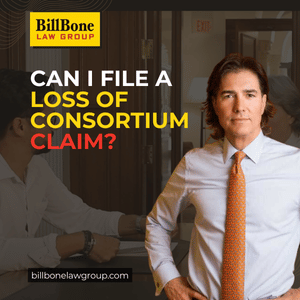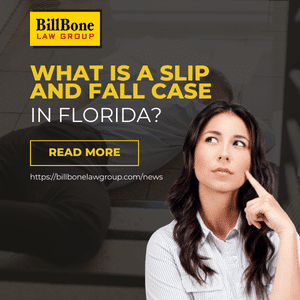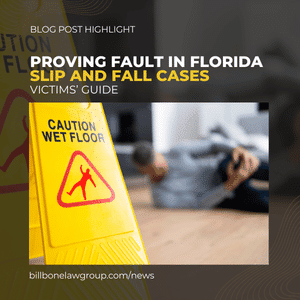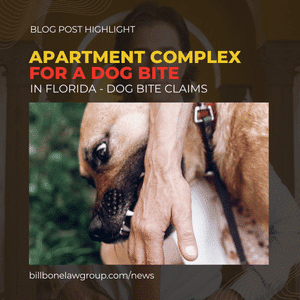Loss of consortium in wrongful death claims often arises when a loved one dies due to negligence in West Palm Beach. The loss extends beyond the immediate tragedy, deeply affecting the emotional and relational bonds within a family.
Palm Beach County, with its busy highways like I-95 and bustling areas like Rosemary Square, sees numerous wrongful deaths every year, often leaving spouses and children struggling with the absence of companionship and support.
At Bill Bone Law Group, we’ve guided families through loss of consortium claims in wrongful death cases for over 25 years, helping them seek compensation for these life-altering losses.
You May Need This Article If:
- A loved one passed away due to a car accident, medical error, or other negligent act in West Palm Beach.
- You’re unsure if you can claim for lost companionship or family support.
- A spouse or parent was killed in a crash, fall, or violent incident.
- You’re navigating grief alongside insurance denials or complex claims.
If your family has been affected by a wrongful death in West Palm Beach, you may be entitled to compensation under Florida law. The experienced and compassionate attorneys at Bill Bone Law Group are ready to fight for your rights. Call us today at (561) 786-2641 for a free consultation.
Loss of Consortium in Wrongful Death Claims in West Palm Beach
Loss of consortium is one of the most challenging aspects of a wrongful death case because it deals with the irreplaceable emotional bonds and daily support a family member provided.
The top causes of wrongful death in West Palm Beach often include motor vehicle accidents, medical malpractice, workplace incidents, and premises liability cases. These tragic events highlight how negligence in different settings can lead to devastating and preventable losses for families.
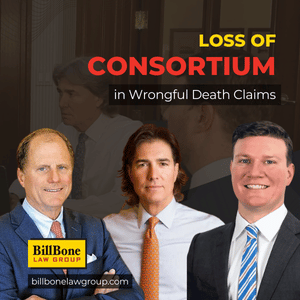
In Florida, such claims are often included as part of a wrongful death lawsuit filed by the estate’s personal representative. These claims allow families to recover compensation not only for financial damages like lost wages and medical expenses, but also for the non-economic impact of losing love, protection, and household support.
Because insurance companies often undervalue loss of consortium damages, it is essential to work with an experienced personal injury lawyer.
The right legal advocate will provide the legal guidance you need, ensure deadlines are met, and fight for the maximum possible recovery. By pursuing legal action, your family can secure the settlement funds necessary to move forward while honoring your loved one’s memory.
What Is a Loss of Consortium Claim in Wrongful Death Cases?
In wrongful death cases, a loss of consortium claim compensates surviving family members for the loss of companionship, affection, guidance, and support caused by the death of a loved one due to another’s negligence.
Under Florida Statutes § 768.21, eligible survivors, such as spouses and minor children, may seek damages for these non-economic losses in wrongful death lawsuits. Such compensable losses include:
- Affection, love, and companionship
- Emotional support
- Guidance and instruction
- Protection
- Sexual relations (in the case of a surviving spouse)
- Assistance with household duties and chores
Can I File a Loss of Consortium Claim in Florida?
In Florida, loss of consortium claims in wrongful death cases are governed by the Florida Wrongful Death Act. F.S. §§ 768.16–768.26.
A wrongful death claim must be filed by the personal representative of the deceased person’s estate. F.S. § 768.20. The personal representative recovers damages for the benefit of the decedent’s survivors and estate.
Under F.S. § 768.21, the following family members are eligible to recover damages for loss of consortium:
- Surviving Spouse: A spouse can recover for the loss of their partner’s companionship and protection, as well as for their own mental pain and suffering.
- Minor Children: The deceased’s minor children (generally defined as under 25) can recover for the loss of parental companionship, instruction, and guidance, in addition to mental pain and suffering.
- Parents of a Deceased Minor Child: The parents of a deceased minor child can recover for their mental pain and suffering.
- Adult Children: If there is no surviving spouse, adult children can also recover for lost parental companionship, instruction, and guidance, plus mental pain and suffering.
- Parents of a Deceased Adult Child: If there are no other survivors, the parents of a deceased adult child may recover for mental pain and suffering.
The statute of limitations for wrongful death claims, including consortium damages, is two years from the date of death. F.S. § 95.11(5)(e). These claims are typically filed as part of the broader wrongful death lawsuit, requiring evidence of the relational impact.
In most cases, loss of consortium claims are brought by spouses, since courts acknowledge how a severe injury can deeply affect a marital relationship. These claims seek compensation for the loss of companionship, intimacy, and the shared duties of daily life.
What to Do Next
After a wrongful death, families face emotional and legal challenges. To support a loss of consortium claim, it is essential to act quickly.
Florida law has a strict statute of limitations for filing a wrongful death lawsuit, generally two years from the date of the deceased’s death.
Florida courts handle wrongful death settlements by carefully reviewing the agreements to ensure fairness and compliance with state law. Judges play a key role in approving the distribution of compensation so that all eligible family members are properly protected.
Missing this deadline, with few exceptions, can permanently bar you from seeking compensation. These wrongful death actions are meant to provide justice and financial recovery for the surviving family.
To build a strong case within this timeframe and support a loss of consortium claim, document the relational impact: note how the loss has changed family routines, such as missed anniversaries or a child’s milestones without a parent.
In legal terms, consortium refers to the loss of companionship, affection, and financial support once provided by the deceased.

These records can also be crucial if the original injured party had suffered a severe injury prior to their passing, linking the negligence directly to the wrongful death claim.
Consulting with a qualified attorney as soon as possible is the most important step to ensure all legal deadlines are met and all evidence is properly gathered.
Additionally, avoid negotiating with insurers without legal advice because they may undervalue non-economic damages like consortium losses.
Consulting an attorney early ensures your claim captures the full extent of your suffering. At Bill Bone Law Group, we urge families to reach out before the two-year deadline to build the most compelling case possible.
In many situations, a wrongful death claim may also connect to a personal injury lawsuit if the deceased first suffered a fatal injury (or in a serious accident) after negligence. Families should understand that a personal injury case involving death requires careful legal strategy to secure full justice.
Ready to Speak With a Lawyer?
Bill Bone Law Group has helped thousands of Florida families seek justice and financial recovery after wrongful deaths left them without vital companionship. Contact us today for a free consultation and case review.
Call us today at (561) 786-2641 if you are in a serious accident. To learn more, visit our Wrongful Death Practice Area page. Share your thoughts about how these legal options for loss of consortium in wrongful death claims in Florida work.

